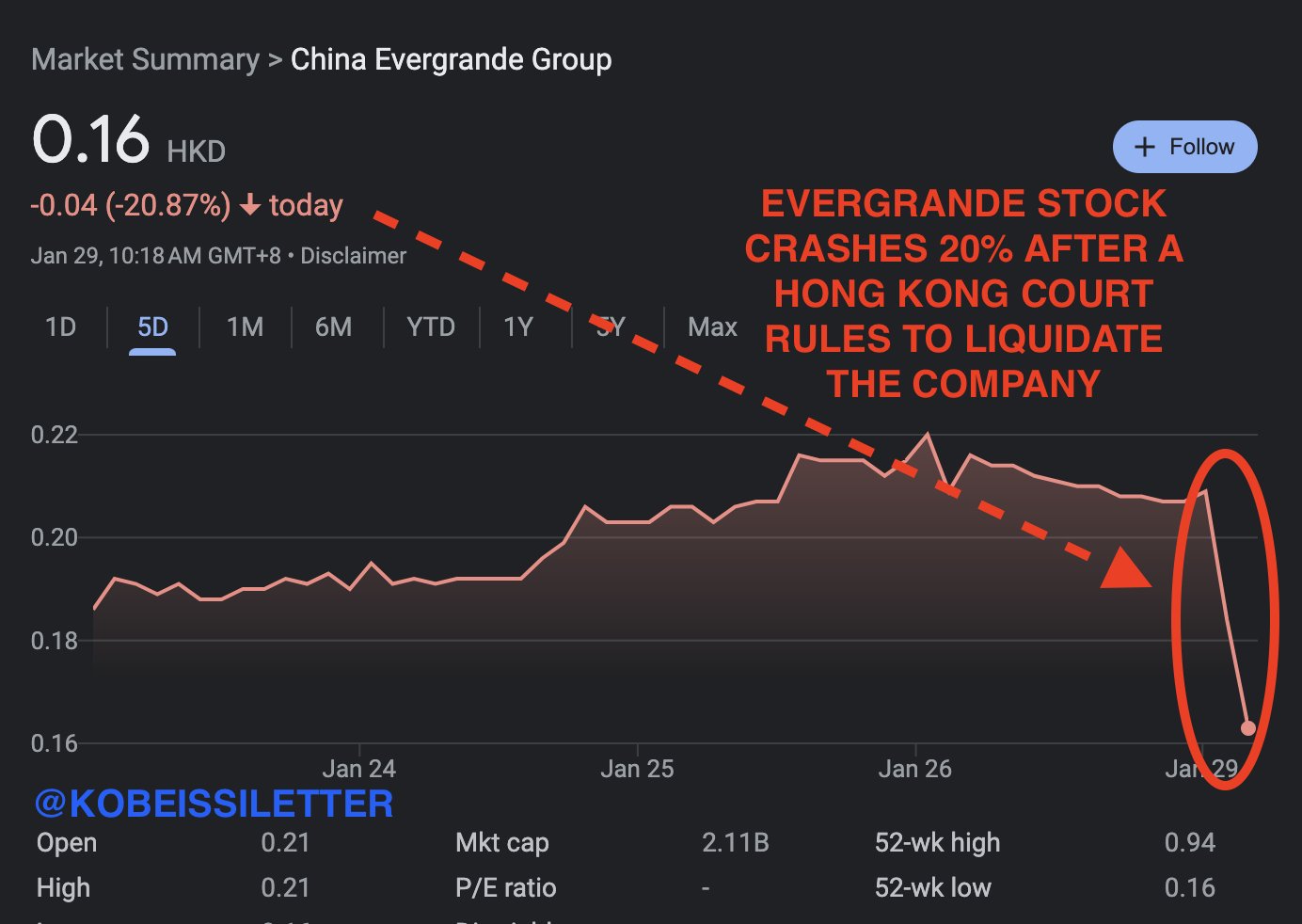Hong Kong High Court Orders Liquidation of Debt-Ridden Evergrande
This post was originally published on
In an unprecedented move that could mark the end of the world's most indebted developer, the Hong Kong High Court has ordered the liquidation of China Evergrande Group, a company staggering under the weight of over $300 billion in debt. Justice Leonard Chen's decision came as a long-anticipated response to the lack of progress between Evergrande and its creditors.
The embattled property giant, which has been a cornerstone of China's booming real estate sector, has seen its restructuring plan disintegrate, leaving offshore creditors with approximately $20 billion of debt hanging in the balance. The assets under consideration for the liquidation process include Evergrande's listed China Evergrande unit, its electric vehicle division that has yet to produce a single car, and its services unit.
Later in today, Justice Linda Chen is expected to explain her rationale behind the liquidation order and appoint a provisional liquidator, setting the stage for what is likely to be a complex and protracted unwinding of the conglomerate's numerous assets.
With Evergrande's stock already suspended from trading in the Hong Kong market, the focus shifts to the appointment of the liquidator and whether this entity will pursue the company's onshore assets in mainland China—a task that, according to analysts, could span years due to the sheer volume of projects and units involved.
The fall of Evergrande is a bellwether for China's property sector, which is already experiencing a crisis of confidence. The liquidation of such a significant player is expected to further exacerbate the declining cycle of property sales, undermining the confidence of homebuyers and potentially leading to broader economic repercussions for the country's real estate market and beyond.
As the story continues to unfold, the global financial community watches with bated breath, recognizing the potential for Evergrande's collapse to send ripples through the international markets.





